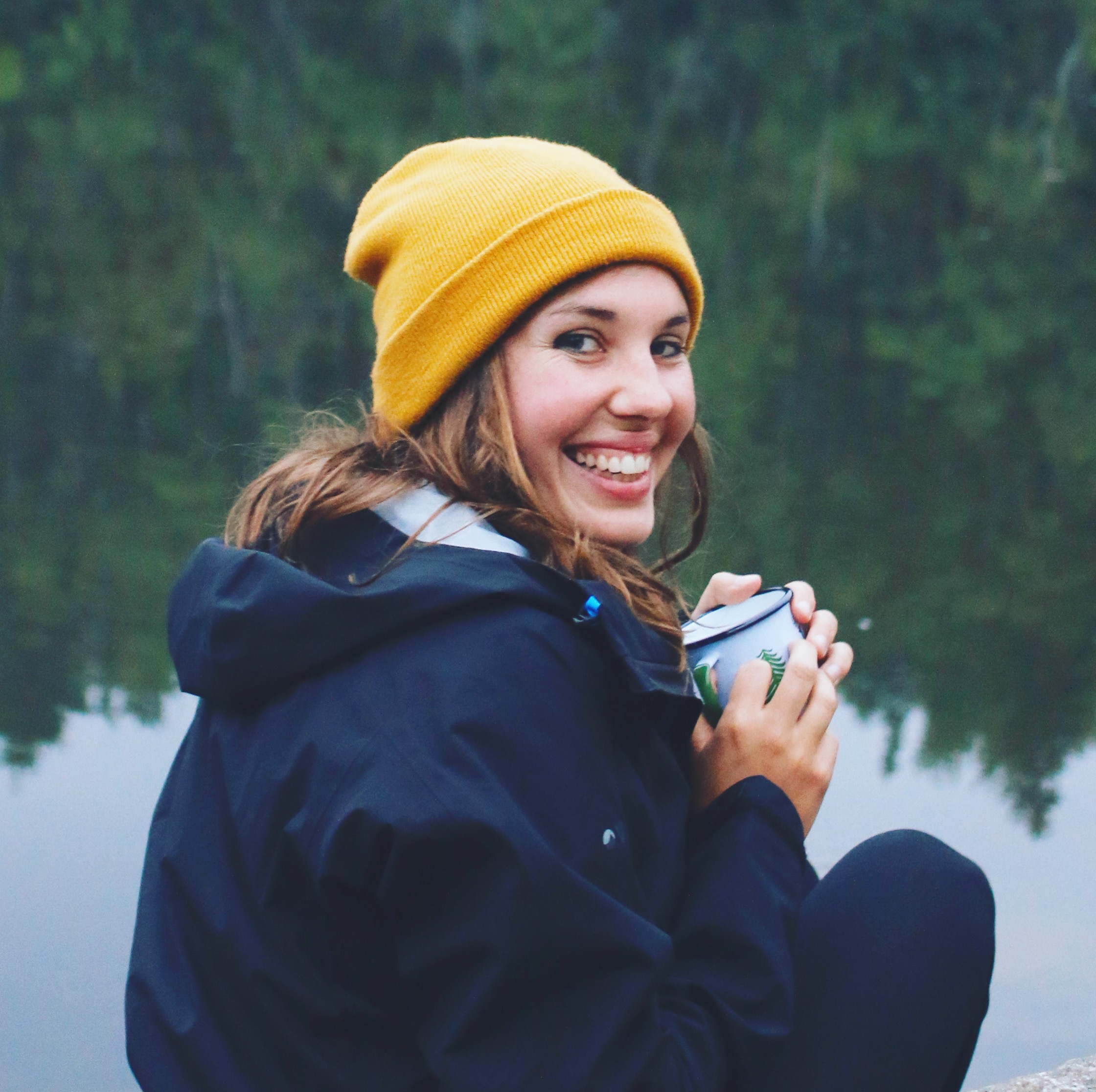“The sea, once it casts its spell, holds one in its net of wonder forever.” wrote Jacques Yves Cousteau, and I don’t think I’ve ever agreed more than when learning to dive down in search of supper in the clear blue waters off the Cornish coast.
Freediving is the art of holding your breath for minutes at a time under water. As its lovely name suggests, it’s far more immersive than snorkelling, and also does away with the unwieldy oxygen tank and unnatural act of breathing underwater of scuba diving
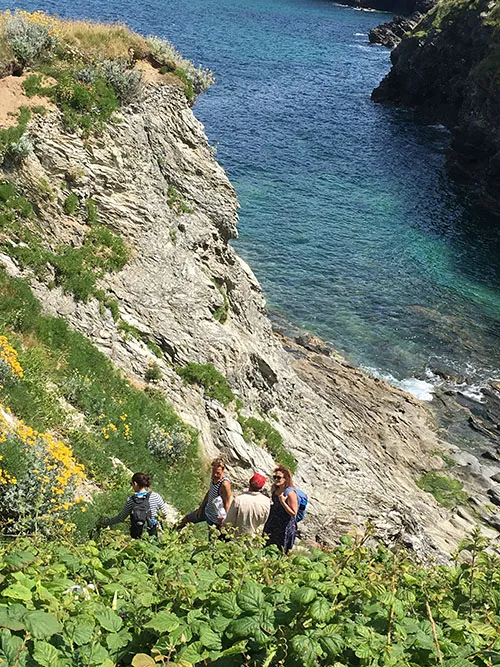
To learn to freedive is to learn to put mind over body and control a breath hold, allowing you to become a creature of the deep for a few precious minutes, an attempt to emulate tribes such as the Bajau people of Indonesia, who can hold their breath for a staggering 13 minutes whilst hunting for fish.
It may sound like a pursuit best suited to the warm waters around Indonesian islands, but Cornwall’s clear turquoise waters are actually the perfect place to learn how to become a mermaid or a merman. So on the sunniest weekend of the year I join Explorers Connect’s freediving and foraging weekend in Newquay with Freedive UK to learn how to dive to the ocean floor and to collect edible goodies under water.
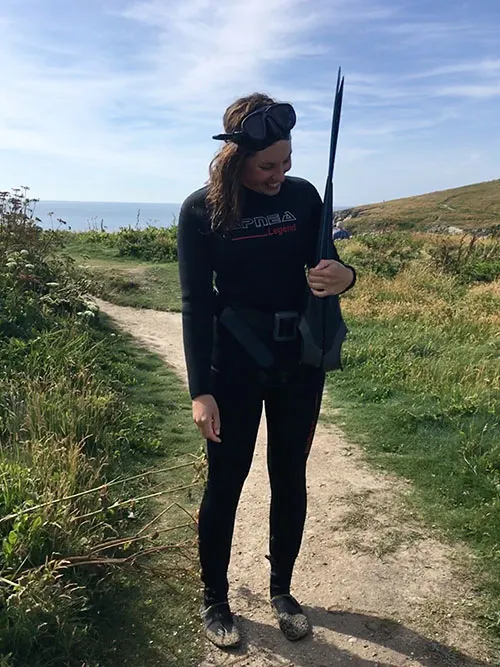
Sea foraging
The two-day course involves one day of theory and pool practise and one day of freediving in the Atlantic Ocean, seeking out foraged goodies to cook up for lunch. The first day begins with theory, and if the concept of learning to hold your breath for minutes at a time seems daunting, the calm and relaxed way our Freedive UK instructors, Richard and Sam, explain exactly how capable our lungs really are makes it seem much more achievable.
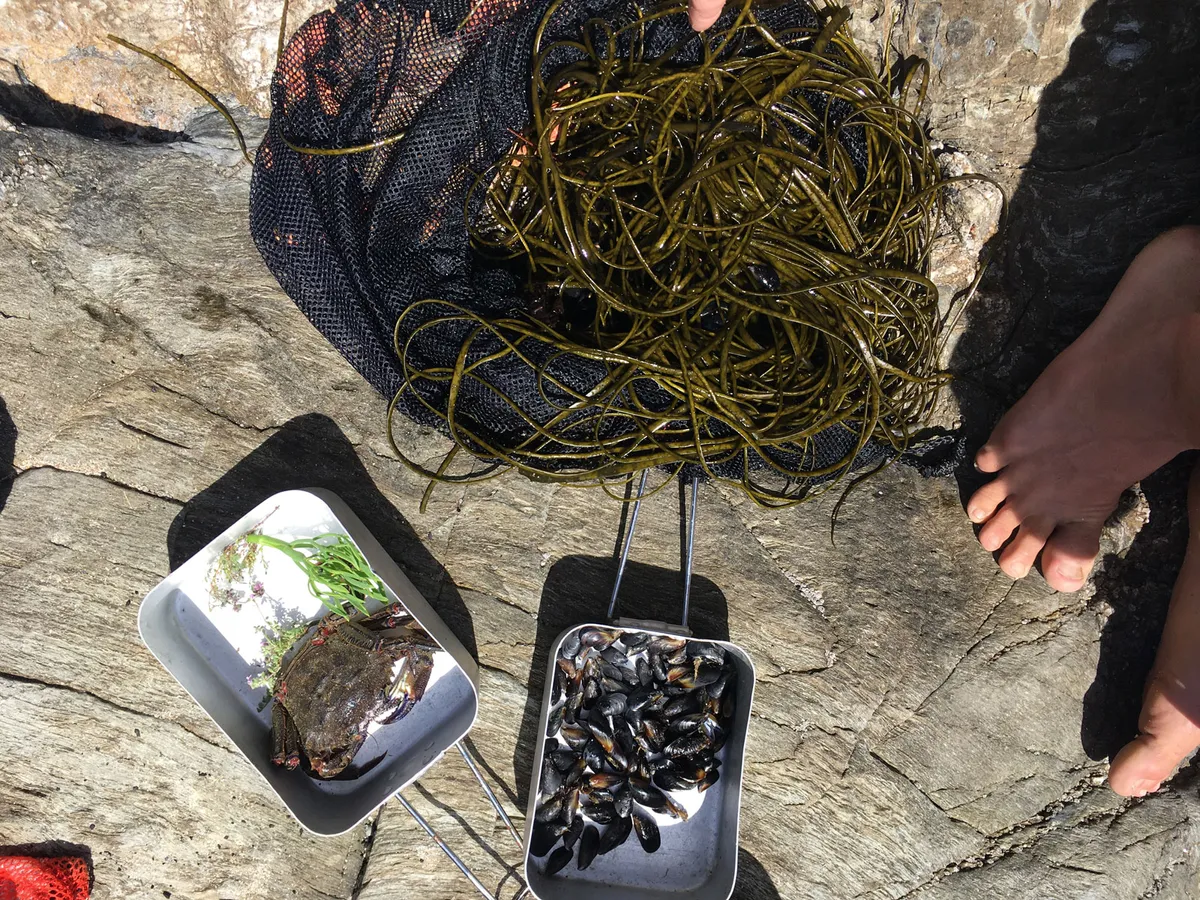
Apnea – literally, the temporary cessation of breathing - is all about relaxing your body and focusing on holding your breath underwater, either whilst floating still (static apnea) or whilst swimming (dynamic apnea). Next it’s off to the local swimming pool, where we don kit – a two-piece wetsuit so snug you have to douse the insides with conditioner before sliding it on, long slim fins, gloves, a hood, a mask and a snorkel.
I realised how much sense it makes to start off in the pool – it makes a safe, relaxed space as we practise working with a buddy and supporting each other through breath holds. We try three holds each, floating face down in the water, and by the third try I’m holding my breath for three minutes, to my astonishment.
The weirdest part of the breath holds are the hiccup-like contractions that start to pulsate in your body after a minute or two. “Just let them happen”, reckons Sam. “It’s normal, and I quite like how they feel!”. After getting comfortable with the static breath hold we try swimming lengths whilst holding our breath, the strong, long freediving fins making it easy to glide through the water.
The next morning we’re up bright and early, ready to spend the day putting our new skills to the test in the ocean. Richard and Sam take us to a little cove near Newquay’s Fistral Beach and arm us with nets and knifes. It takes a while to get used to the cold sting of water on my face, but the further from the beach we swim the more a peaceful, magical world opens up below me – waving fronds of seaweed, flitting iridescent fish. Richard tells us to keep an eye out for seals. The water is as clear and calm as a tropical sea, if not quite as warm.
We swim out and practise diving down to ten metres, combing the seaweed and the rocks for edible goodies. Yesterday’s breath hold practise makes me far more confident, diving down and staying down beneath the surface without any rising panic. My fearless fellow freediver Katherine spots an enormous spider crab on the sea bed and dives down for it, bringing it to the surface triumphantly. I spot one a while later but he scuttles away before I can work up the nerve to nab him. We content ourselves with collecting the long thin fronds of sea spaghetti that wave at us from the deep, and watching as Richard proves his freediving mettle by disappearing into an underwater cave and coming out with a velvety blue lobster.

As we round the corner along the bay, I find my own contribution to lunch – a bed of mussels clinging to a rock a few metres below me. I swim down, carve off a few handfuls with my knife and add them to our net bag of edible goodies. With help from Richard and Sam’s eagle eyes we head back to shore with a booty of three spider crabs, a brown crab, a lobster and plenty of sea spaghetti, plus handfuls of gutweed (a lime-green seaweed far tastier than it sounds), limpets prized from rocks near the shore and sea beet and wild thyme foraged from the surrounding cliffs. Who knew the British coast could be so fruitful?
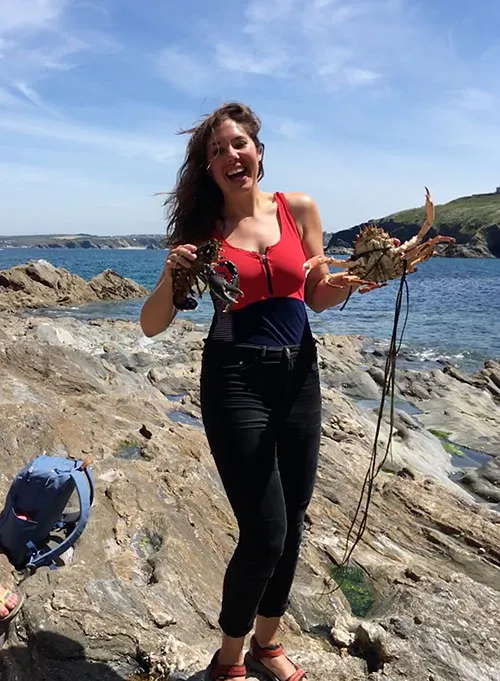
Once we’ve taken off our seal skin-like wetsuits and dried off, we have a slap-up barbeque down in the cove. The lobster and crab, freshly grilled and straight from the sea, are some of the best I’ve ever eaten, and Richard shows us that sea spaghetti really can be cooked up like pasta, turning a virulent green but proving delicious eaten with the mussels. Even the limpets, which I’m not keen on raw, are a delight once smoked over the fire. Richard cracks open Katherine’s spider crab, puts each half on the coals to cook and sits back with satisfaction. “A proper Cornish barbeque. You can’t get fresher seafood than freediving for it yourself.” The Bajau would be proud.
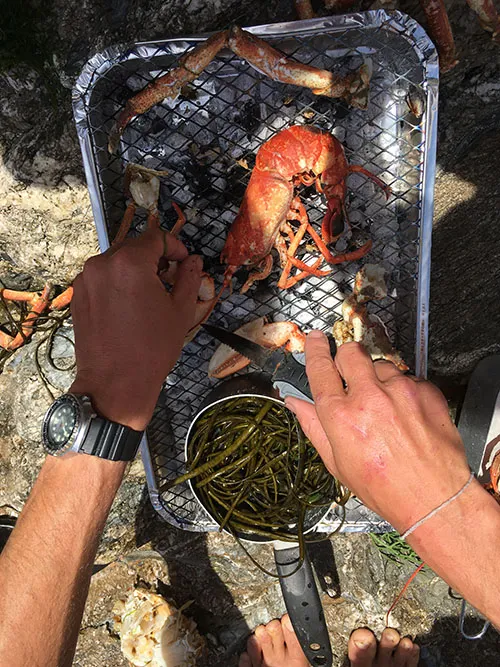
More info
Our writer Sian took part in an organised trip with Explorers Connect and FreeDive UK.
Explorers Connect organises adventures, holidays and courses all over the UK and around the world. Experiences are open to all levels of ability and include everything from kayak camping and bikepacking to trekking to Everest Basecamp. explorersconnect.com
FreeDive UK offer introductory courses to freediving, AIDA one to four star accreditation, spearfishing courses, apnea for surfing and even mermaid classes complete with sparkly tails. All courses are taught in Newquay in the classroom and the Atlantic. The AIDA One Star one day course costs £125, a one-day marine foraging course (no freediving experience required) costs £100. freediveuk.com
Main image: Fistral Beach, Newquay, Cornwall, UK. Taken in September from the South West Coast Path to Pentire Point East/Credit: Getty
